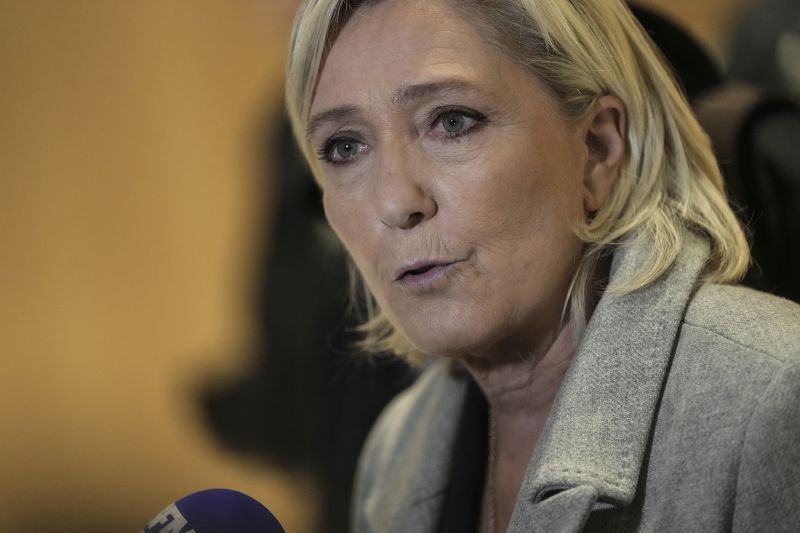Marine Le Pen, the stalwart leader of France’s far-right National Rally party (previously known as the National Front), along with her party, is on trial for allegedly misappropriating funds allotted to them by the European Union. The trial aims to uncover the truth behind the charges of embezzlement, highlighting the complexities of political financing in modern Europe.
The case revolves around the accusation that Le Pen and her party misused public funds from the European Union to pay parliamentary aides who were, in effect, working on domestic political activities. As per EU regulations, the funds in question were meant to be used for European parliamentary lawmakers’ assistants who work on EU matters. However, from 2014 to 2018, it was alleged that these funds were utilized to remunerate party employees for services delivered domestically to Le Pen’s party.
The French investigating judges and the European Anti-Fraud Office (OLAF) had initiated a preliminary investigation in 2015. Following the investigation, OLAF accounted for an approximately 5 million euro loss to the European parliament due to these alleged illicit activities. The National Rally party and Le Pen vehemently deny these charges, dismissing them as a politically motivated attack fueled by the EU authorities.
Marine Le Pen is a central figure in this case and a priority target given her status as party leader during the time period in question. However, she is not alone in standing trial. Her father Jean-Marie Le Pen, the founder of the National Front, two other party members, Frederic Chatillon and Nicolas Crochet, as well as her bodyguard Thierry Legier are also on trial for the same charges.
The trial could have critical implications for Le Pen’s political career as she is a probable candidate in France’s 2022 presidential elections. A conviction could lead to a sentence of up to five years in jail and a fine of 375,000 euros, which would undoubtedly tarnish her political reputation and jeopardize her prospects in the upcoming election.
Prosecutors argue that the National Rally knowingly created a system intending to divert European parliament funds for their use. Meanwhile, defense lawyers maintain that the accusations base themselves on political considerations, insisting that the whole claim is a sinister plot to undermine the National Rally and its leader.
Interestingly, this trial is one of several legal issues the party is currently facing. The National Rally is also under investigation for slander and hate speech related to comments on immigrants and Islamic traditions.
As the trial unfolds, one thing is certain – all eyes are on Marine Le Pen and her party as this case serves as a cautionary tale for the risks of unregulated political financing. Regardless of the outcome, these proceedings also bring to light the ongoing struggle between national sovereignty and supranational governance within the European Union.




